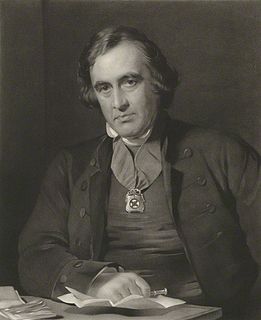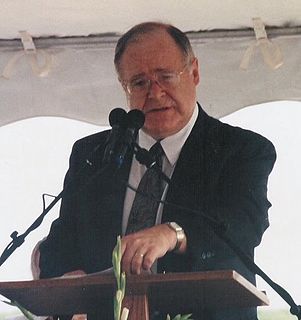A Quote by A. A. Milne
It is a terrible thing for an author to have a lot of people running about his book without any invitation from him at all.
Related Quotes
"The best is oftentimes the enemy of the good;" and without claiming for an instant that title of good for my book, I do not doubt that many a good book has remained unwritten, or, perhaps, being written, has remained unpublished, because there floated before the mind's eye of the author, or possible author, the ideal of a better or a best, which has put him out of all conceit with his good.
Reading a book should be a conversation between you and the author. Presumably he knows more about the subject than you do; if not, you probably should not be bothering with his book. But understanding is a two-way operation; the learner has to question himself and question the teacher, once he understands what the teacher is saying. Marking a book is literally an expression of your differences or your agreements with the author. It is the highest respect you can pay him.
No one really knows the value of book tours. Whether or not they're good ideas, or if they improve book sales. I happen to think the author is the last person you'd want to talk to about a book. They hate it by that point; they've already moved on to a new lover. Besides, the author never knows what the book is about anyway.
I finish where I began: Jesus' statement "Come and see" provides both an invitation and a promise to all people everywhere. Come to Him; see Him as King of Kings and Lord of Lords; recognize in Him the great Messiah who will come again with healing in His wings, to set His people free. He will wrap you about in the cloak of His redeeming love, and your life will be changed forever.
One thing I learned about Gordon Brown is you've got to have the strength to just get in there and take him on. When you first hear him spouting his statistics and boasting about his record, it can be quite intimidating. But over time, shadowing him, I just realised that a lot of it was rubbish; a lot of it was baloney.
Utopian fiction is really boring. I had to read a lot of it, and it's not that much fun. But they're fascinating to me as historical documents. Cabet [Icaria's founder and author of the utopian novel, Travels in Icaria], is writing in the 1830s, and his idea of the perfect society reveals a lot about his time. But his book is uniquely bad.
Cormac McCarthy is my favorite author in the world. I love him so much. There's one book that informs me more than The Road - it's called Suttree. That book is a huge influence on me. I'm not smart enough to emulate him, but he inspires me. He never infiltrates my writing directly. He writes incredibly intelligently about people that are marginalized.
There are three infallible ways of pleasing an author, and the three form a rising scale of compliment: 1, to tell him you have read one of his books; 2, to tell him you have read all of his books; 3, to ask him to let you read the manuscript of his forthcoming book. No. 1 admits you to his respect; No. 2 admits you to his admiration; No. 3 carries you clear into his heart.
Authors have a greater right than any copyright, though it is generally unacknowledged or disregarded. They have a right to the reader's civility. There are favorable hours for reading a book, as for writing it, and to these the author has a claim. Yet many people think that when they buy a book they buy with it the right to abuse the author.
God's on the outside looking in. He doesn't have any legal entree into the earth. The thing don't belong to Him. You see how sassy the Devil was in the presence of God in the book of Job? God said, 'Where have you been?' Wasn't any of God's business. He [Satan] didn't even have to answer if he didn't want to ... God didn't argue with him a bit! You see, this is the position that God's been in Might say, 'Well, if God's running things He's doing a lousy job of it.' He hadn't been running 'em, except when He's just got, you know, a little bit of a chance.
Wildlife was the only thing we've written together with Paul Dano. It's based on a book by this author Richard Ford, who just published a memoir about his family that's really wonderful. Paul fell in love with his book, and we optioned it ourselves, and he took a first pass at writing it. He asked me for notes, and then our note session devolved into an argument really quickly.

































